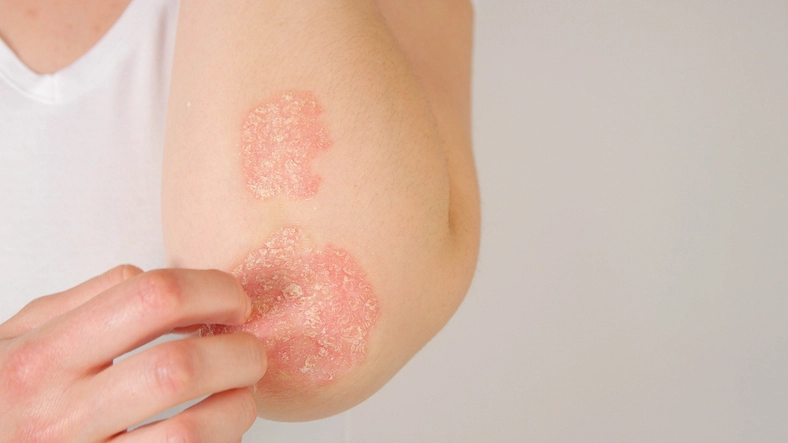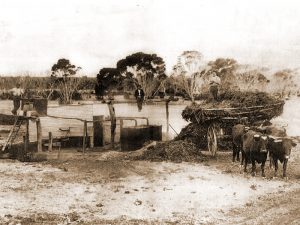No products in the cart.
Emu Oil and Psoriasis
17 November 2014

Psoriasis is a non-contagious skin disorder that most commonly appears as inflamed swollen skin lesions covered with silvery white scale. The most common type of psoriasis is called “plaque psoriasis”.
No one knows what causes psoriasis, though it is generally accepted that it has a genetic component, and a recent study has established that it is an autoimmune skin disorder. Scientists believe that a person is born genetically predisposed to psoriasis.
Whether a person actually develops psoriasis may depend on something “triggering” its appearance. Examples of “trigger factors” include systemic infections such as strep throat, injury to the skin, vaccinations, certain medications, and intra-muscular injections or oral steroid medications. Once something triggers a person’s genetic tendency to develop psoriasis, it is thought that in turn, the immune system triggers the excessive skin cell reproduction.
Skin cells are programmed to follow two possible programs:
normal growth or wound healing. In a normal growth pattern, skin cells are created in the basal cell layer, and then move up through the epidermis to the stratum corneum, the outermost layer of the skin. Dead cells are shed from the skin at about the same rate as new cells are produced, maintaining a balance. This normal process takes about 28 days from cell birth to death.

When skin is wounded, a wound healing program is triggered, also known as regenerative maturation. Cells are produced at a much faster rate, theoretically to replace and repair the wound. There is also an increased blood supply and localized inflammation. In many ways, psoriatic skin is similar to skin healing from a wound or reacting to a stimulus such as infection. Lesional psoriasis is characterized by cell growth in the alternate growth program. Although there is no wound at a psoriatic lesion, skin cells behave as if there is. These cells switch from the normal growth program to regenerative maturation. Cells are created and pushed to the surface in as little as 2-4 days, and the skin cannot shed the cells fast enough. The excessive skin cells build up and form elevated, scaly lesions. The white scale (“plaque”) that usually covers the lesion is composed of dead skin cells, and the redness of the lesion is caused by increased blood supply to the area of rapidly dividing skin cells.
Various kinds of temporary relief are available, and they work with varying degrees of success. Treatments and medications are often time consuming and expensive. They can be cosmetically unpleasant and pose additional health risks. Psoriasis does not follow a predictable course. Each individual case breaks its own trail.
It takes experimentation and persistence to discover effective treatments for each individual. No claims are made that Emu oil can “cure” or “treat” any disease, but many consumers have reported gaining relief of the dry, itchy skin associated with psoriasis, by using Emu Oil and as part of their regimen. Emu Oil is a “tissue nutrient”, and may help in the “normal growth” skin cell program, perhaps over-riding the alternate growth program which causes lesions psoriasis. While some folks have reported tremendous relief by using Emu Oil, others have found no relief. It is not possible to predict the effectiveness of many products for everyone. Each persons’ body is different, and each person must try Emu Oil themselves to discover its effectiveness. Consumer reports are very positive! Please use as much as possible natural shampoo and conditioners, soaps and body care products. You should moisturise your skin with emu oil daily morning and night or more if your problem is worse, even try having a teaspoon a day to treat the condition from within.
For reviews on our Emu oil click here
To Purchase Emu oil visit our online shop www.emuridge.com.au
This information was sourced by Emu Ridge from a variety of different publications and studies including the Emu Oil Institute
No information contained within the pages of emu-oil.com should be construed as medical advice. We are not doctors. Please contact your physician for medical advice. We make no medical claims, expressed or implied.





